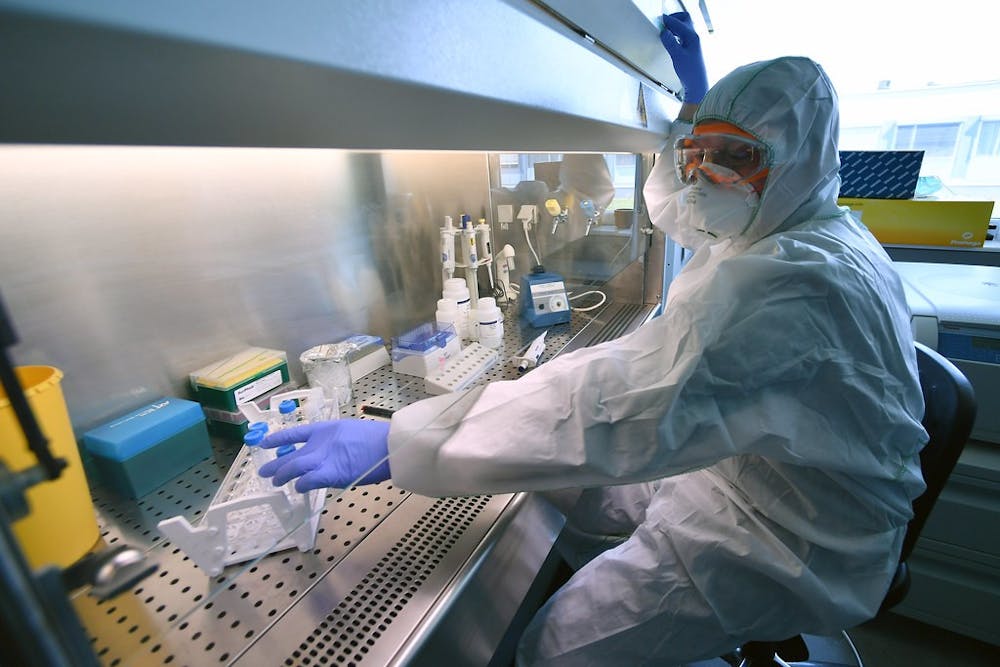Jan. 21, 2021 marked the one year anniversary of COVID-19 cases being officially reported in the United States. The world as we knew it came to a halt months ago, but conspiracy theories continue their spread through the nation. Instead of believing scientists and doctors, many Americans get their information from Facebook walls and unreliable sources, valuing rumors over facts and privileging fiction over science.
2020 is finally behind us. 2021 is the year to wipe the slate clean, to remember the evident and horrifying division in our country, and to come together to defeat the pandemic as a united front. With the prospects of a vaccine within grasp, we need to actively listen to each other. Despite the myriad differences we share, we can no longer be divided on the question of science versus fiction. We need to collectively trust in science to motivate us as we navigate the ever-changing pandemic. As we long for the Princeton we all love — the Princeton that first-years have never experienced and that encompasses much more than just being able to sit down next to your friends in the dining hall or go into Firestone without an appointment — we must listen to science.
According to Pew Research Center, at least one fourth of Americans believe the conspiracy that COVID-19 was planned. Its origin in Wuhan and former President Trump’s identification of COVID-19 as “the China virus” laid the foundation for higher counts of discriminatory acts against Chinese Americans and Asian Americans at large. Such ostracization was based not in fact or science but rather in a rejection of these realities in favor of an ideology of xenophobia that continues to plague the country. With racial tensions on the forefront of the American mind due to the activism of this past year, the increased discrimination against Asians in the United States fueled bias against minorities that only created further divisions.
Political parties, instead of finding common ground and uniting the American people, created a chasm where one side promoted science and the other created fiction. Instead of educating Americans about the dangers of the virus, right-leaning news sources chose to spread misinformation, even questioning the reported mortality rates of the virus. Questioning and belittling the mortality rate is not only dangerous in its ability to foster recklessness and spread the virus, but it also shows how little respect people have for the nearly 450,000 Americans who have died due to COVID-19 complications.
Rather than trusting medical professionals, many people scrutinized epidemiologists and doctors for “overreacting” to the mortality rate. Dr. Anthony Fauci was constantly belittled by former President Trump, which normalized disrespect towards scientists and encouraged the impression that medical professionals were overreacting. As we enter the Biden-Harris administration, Fauci’s first press conference promised Americans to “base everything on science and evidence.” Though there has been so much damage to science’s reputation, an administration such as that of Biden and Harris — one that respects scientists — will start to mend the broken ties between parties and strengthen a national respect for science.
This mending of a broken nation is one that we too are witnessing at Princeton: at the end of 2020, the University sent out interest forms to students to gauge interest in receiving the COVID-19 vaccine. I see this as a light at the end of a very long, twisted, dark tunnel. I feel proud and privileged to even say “we are probably getting the vaccine.” However, when I talk to friends from Princeton and other universities, they are hesitant to believe in the quick turnaround required to successfully vaccinate thousands of students and faculty. Instead of worrying, I urge us to embrace the fact that, despite how flawed it has been, vaccine distribution is a huge milestone in the journey to normalcy. If we commit to trusting in the science that has brought us the vaccine, we can leave the hostility behind and look forward to a new beginning, one in which we heal from the gravity of the pandemic.
It’s time to “let the science speak.”
Maisie McPherson is a sophomore from Dana Point, Calif. She can be reached at maisiem@princeton.edu.








